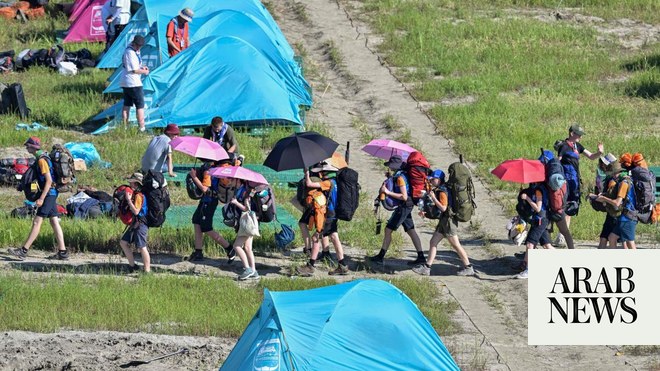
Clutching white candles and black signs, the solemn-faced mourners gathered across Seoul to grieve the young victims of the Itaewon crush — and deliver a stinging rebuke to the government.
As public anger continues to build over the biggest tragedy in South Korea in nearly a decade, thousands turned up for several vigils and protests held across the capital.
On Oct. 29, a deadly crowd crush killed 156 people — mostly young people — and injured another 196 during Halloween festivities in the nightlife district of Itaewon.
One week on, the authorities have launched an investigation, raiding municipal offices and local police and fire stations.
The national police chief has apologized, as has President Yoon Suk-yeol, who has vowed to improve crowd control measures in the future.
But it has not been enough to slake the public thirst for justice. Many feel a deep sense of shame that authorities have failed to protect its young — an irony for a country known for its youthful, K-pop driven image on the international stage.
On Saturday, activist and political groups rode on that wave of anger with at least seven vigil-protests across the capital.
The biggest one was organized by Candlelight Action, an alliance of progressive groups, which had been holding regular political protests against President Yoon even before the Itaewon tragedy.
It was held near City Hall, which saw two lanes of a major road blocked off to accommodate tens of thousands of protesters. Many carried black protest signs that said “Stepping down is an expression of condolence” — a pointed message for President Yoon.
Onstage, speakers took turns to rail against the government in speeches interspersed with mournful song performances and prayers recited by Buddhist monks.
“Although the government clearly has responsibility, it is looking for perpetrators from irrelevant organizations... the incident occurred because the government did not play its very basic role,” said one speaker.
“Step down, Yoon Suk-yeol’s government! Step down, Yoon Suk-yeol’s government!” the crowd chanted, waving their candles and placards.
Earlier in the day at Itaewon, a crowd of 200 protesters from various youth political groups gathered near the site of the incident.
Clad in black clothing and facemasks, they held aloft banners that read: “At 6:34 the country was not there [for the victims]”.
This was a reference to the time of the first emergency call made to the police, hours before the crush actually happened. In total 11 calls were made that night.
After observing a minute of silence while facing the alley, their heads bowed, the group silently marched down the busy main thoroughfare of Itaewon.
They held white chrysanthemums — the flower of grief in Korean culture — and black placards reading: “We could have saved the victims, and the government should recognize their responsibility.”
“I felt sad at first. But now I’m angry. I’m here because this incident could have been prevented. Those people were close to my age,” said 22-year-old university student Kang Hee-joo.
At their final stop, a war memorial, youth activists took turns to deliver speeches.
“This society is not normal, we are not safe. The government is not fulfilling its responsibility, it has pushed it to the youth... what kind of lesson did we learn from the Sewol incident?” said one speaker, referencing the 2014 ferry disaster that killed more than 300 people, mostly high school students.
“They always promise change with every election. But why is there always a social disaster? This is what the young people are questioning,” said another.
Back at City Hall, a sea of candles flickered as night fell, bathing the masked faces of the protesters in a warm light. Many of them were middle-aged or older people.
Yeom Sung-won, who has two young adult children, could still vividly recall the Sewol incident.
“That was very sad. And it’s unbelievable this is happening again. That’s why I’ve come here,” said the 59-year-old architect as his eyes welled up with tears. “I’m heartbroken, it’s so senseless.”
“The government has ignored them. It should protect its citizens and secure their safety no matter what.” — BBC











